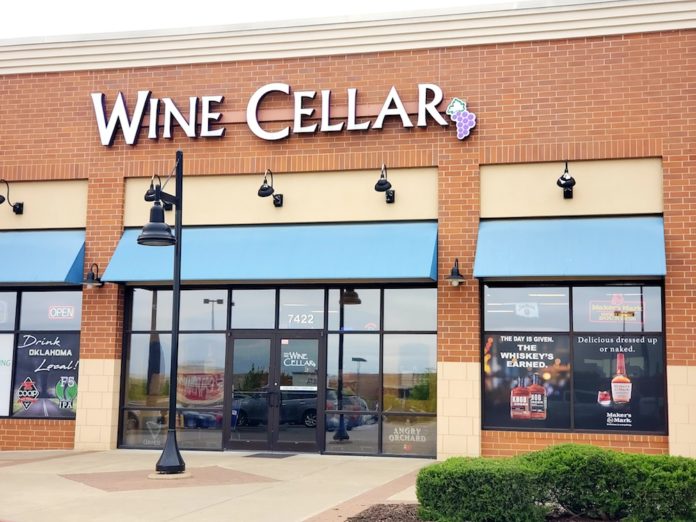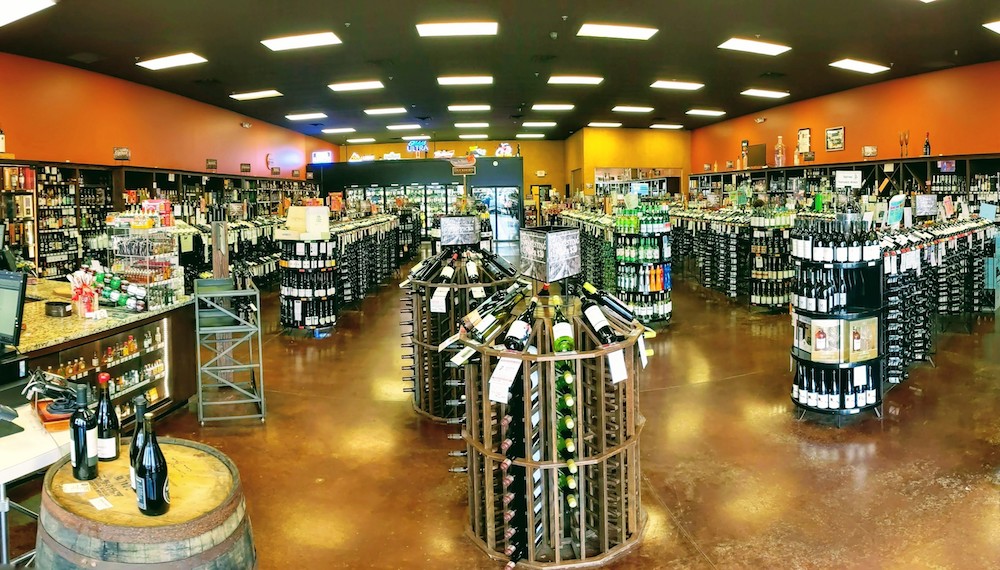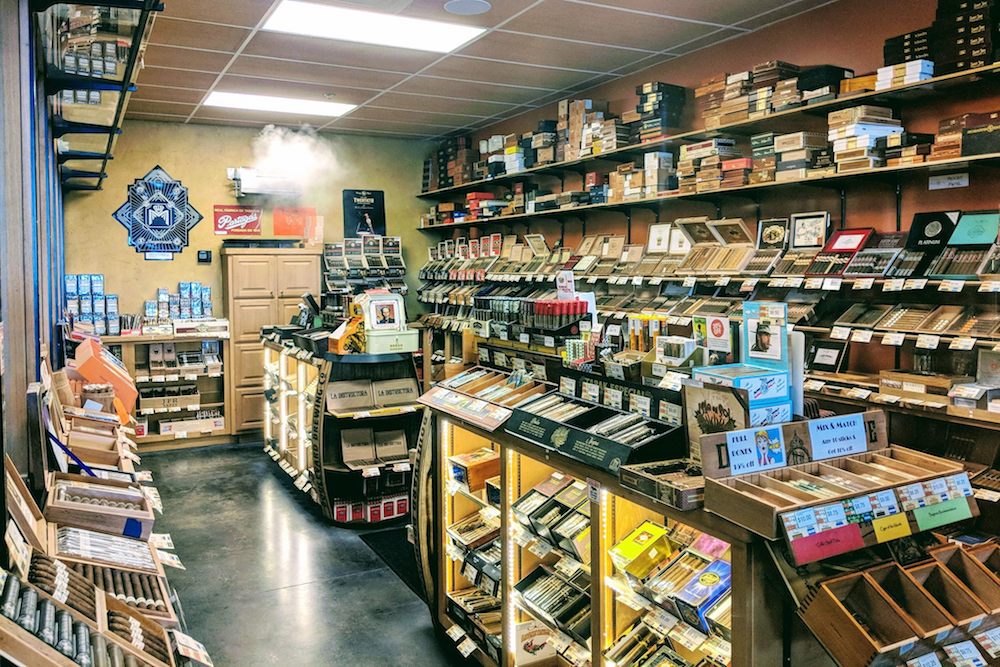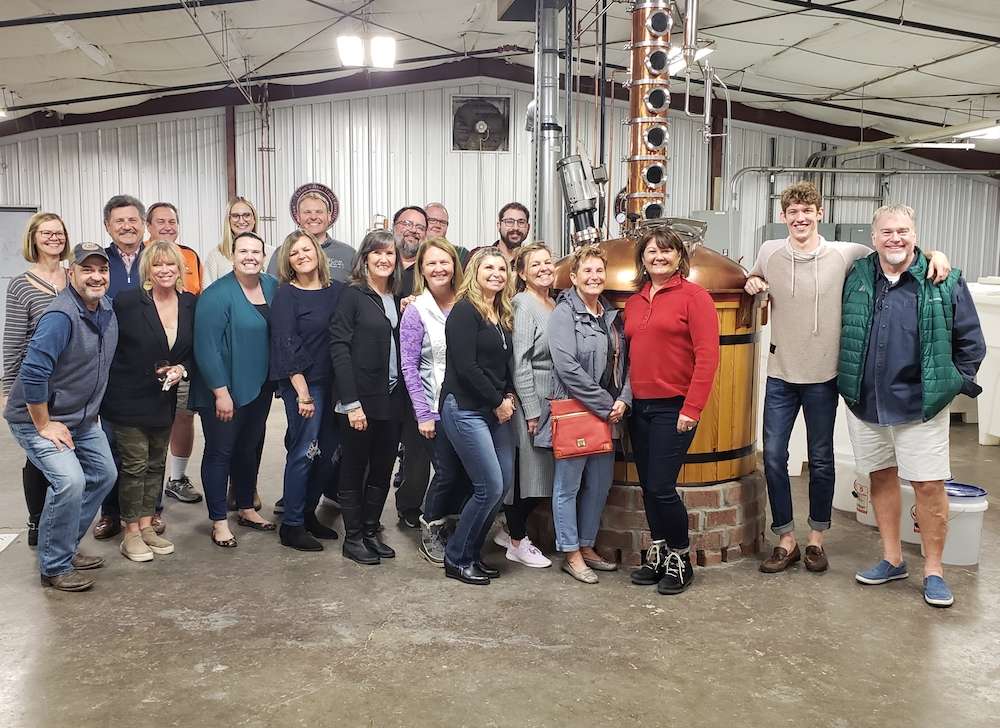
The novel coronavirus has forced a new reality on beverage alcohol retailers. Mostly deemed essential, allowed to remain open, these businesses now operate amidst a spreading, highly contagious pandemic.
At the same time, consumer buying patterns have changed due to COVID-19. This has also necessitated adjustments from liquor stores, as they reflect the current purchasing trends.
For a deeper dive into how one store has handled all these sudden challenges, we recently spoke with Andrea Gardner, general manager for Tulsa Hills Wine Cellar and Tulsa Hills Cigar Cellar & Market, in Tulsa, OK.
Beverage Dynamics: We’ve seen liquor sales spike during this pandemic. How much are your sales up?

Andrea Gardner: Looking at March 15 to April 15, sales are up 48% for Tulsa Hills Wine Cellar. The biggest category increases are liquor at 56% and beer at 48%. About 6% of our total sales are hand sanitizer, which I address below.
I just ran sales reports for today, for example. Today we netted twice what we did on a comparable day last April.
The last months’ numbers are almost back to 2018 levels, which is significant. In Oct 2018, Oklahoma liquor laws changed, allowing grocery and convenience stores to carry full-strength beer and wine under a certain ABV. That killed a lot of liquor stores across the state. The Oklahoma Retail Liquor Association estimated that about half of the state’s liquor stores (mostly small mom-and-pop outfits) would go out of business. I don’t know how that number looks right now, but we are all dealing with a very different landscape.
BD: What products are people buying?
AG: The products people are buying don’t look all that different from previous years or other times. It’s really an increase in quantity more so than different buying patterns. People are buying more of what they like. We are continuing to bring in new products, and hosting virtual tastings in introducing our customers to new and different products, so I think many are still willing to experiment as much as before.
What people are buying the least of is wine, but that is not new (see above). Wine sales for March 15 to April 15 are almost identical this year compared to last year.
People are buying hand sanitizer. We have partnered with Red Fork Distillery, a local distillery, to sell their hand sanitizer exclusively. Since they began production in March, we’ve sold 124 cases for $18,000+. We have opted to make almost nothing on this product to keep it affordable at $25 per 750-ml. bottle, and give a portion of the proceeds back to Red Fork, so that they can supply local police departments, fire departments and other first responders for free. We are honored to be able to do our small part to help protect our community.
We are also looking for a local producer of facemasks, so that we could sell them at the stores. Again with this, we would keep the cost as low as possible to make them affordable. The point is to provide a service to our community, not to make a profit off of these items.
In terms of spirits, people are buying spirits for mixing: Titos, Crown, Jack, etc.
People’s buying habits are changing according to when they shop and how much they buy at a time. For example, we see more people in the store during the day and fewer than normal in the evenings, now that their schedules are altered. Similarly, more people can shop during the week, which offsets the usual business of the weekend.

BD: How much has digital delivery grown?
AG: Exponentially. While we have had our entire inventory on our website since last summer, this past month sales from our website have gone from being few and far between to a large portion of our total sales.
Similarly, we have offered curbside pickup of orders for six months but have only in the past month had people take us up on it.
I think this situation is reminding people that there are different ways to operate outside of the usual. People make many purchase decisions based upon habit. Now that we are shaking that up, I expect our website sales and curbside pickup will continue to thrive.
BD: Do you have any coronavirus-related rules in place?
AG: Absolutely. It would be socially irresponsible to continue to operate as usual given the current situation. That would be a disservice to our customers, our employees and our community. As an essential business, we owe it to our community to serve them safely. We have implemented the following:
- Reduction in store hours (closing at 7 p.m. instead of 9 p.m.) to allow for more thorough cleaning and disinfecting
- Providing gloves, hand sanitizer, cleaning solutions at every register for both employees and customers
- Allowing employees a leave of absence (no questions asked) if they choose not to work during the pandemic
- Offering a temporary rate increase to employees who have chosen to continue to work
- Implementing virtual tastings and video tutorials with employees and/or reps to continue events amidst restrictions.
BD: How has the pandemic impacted the cigar store?
AG: Tulsa Hills Cigar Cellar & Market is the neighboring sister-store to Tulsa Hills Wine Cellar that sells cigars, pipe tobacco, accessories, gifts and specialty foods. We feel incredibly fortunate that the cigar store has been allowed to remain open since we sell food items there.
That being said, sales for March 15 to April 15 at the Cigar Cellar are down slightly compared to last year. I expected more customers to be coming in for food, non-alcoholic drinks and similar staples, but that has not been the case. The Cigar Cellar continues to be predominantly cigar and pipe tobacco sales, but fewer customers are willing to come in compared to the Wine Cellar.

BD: How have you changed your interactions with customers?
AG: This is an opportunity for us to explore new ways to connect to customers and potential customers, so we are investing more time on social media, particularly videos and virtual tastings.
The figures I’ve seen are that people are spending anywhere from 20-40% more time on devices. Many are bored and lonely, stuck at home. They are looking for entertainment, and they are looking for new ways to be social while being safe.
By doing regular virtual tastings and smoking events, we can connect with our customer base and also expand our reach far beyond that to anyone with internet. And those videos stay on our social media feeds for anyone to watch whenever it is convenient.
Our reps and employees have enjoyed the virtual events so much that we will probably continue with them after business is back to normal. I’ve heard at least one rep exclaim, ‘We should have been doing this all along!’ It’s just one more way to interact with people.

BD: Broadly, how do you see the business’ role in this current environment?
AG: The general sentiment around here is that we are so grateful to be considered an essential business and remain open. I don’t take that gift for granted. We are being cautious because no one can predict what the future holds, but this increase in sales is helpful. The way I see it, it helps to be able to put a little more away now in case there comes a point where we are forced to close our doors temporarily.
That said, I take the responsibility very seriously of having employees who rely on this job. I want to be able to keep our doors open as long as possible, as much for them as for the company as a whole. Some have already lost other sources of income, so I am thankful we can offer them stability – even more hours and a temporary pay increase.
I find it frustrating that people keep talking about ‘reopening the economy’. News flash, people: the economy is still open, and it will remain open. An economy can’t be ‘closed’. It isn’t something you turn off at will. It may be operating at a lower and slower level, but life is going on. It is just a new, temporary norm. The worst thing we can do is view it as ‘closed’ or ‘broken’. That inherently hurts the economy.
The only way we are going to get through this is as a community, by working together to support each other. I’m glad that there are grant and loan options for small businesses who are struggling, but my hope is that we never have to tap into that. Leave those resources for the businesses that need them most. This situation is a stark reminder of how much of an impact shopping local has on a local economy. It is that much more important now that we support local, small businesses.
This interview was edited and condensed for publication.
Kyle Swartz is editor of Beverage Dynamics magazine. Reach him at kswartz@epgmediallc.com or on Twitter @kswartzz. Read his recent piece How Can Craft Distilling Survive The Coronavirus?





